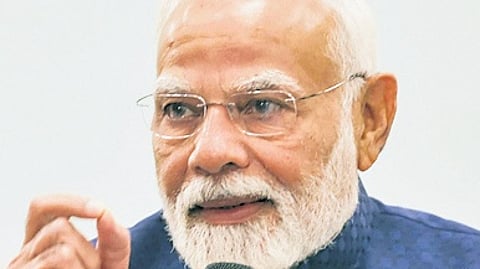

NEW DELHI: Prime Minister Narendra Modi held a meeting on Thursday with a delegation of leaders from the Dawoodi Bohra community, who conveyed their gratitude to him for the Waqf (Amendment) Act. The legislation has fulfilled several of the community’s key demands.
During the interaction, Modi shared that he had studied the intricacies of the Waqf system for five years. He revealed that the government had received over 1,700 complaints regarding the Waqf, particularly from women, highlighting concerns about its mismanagement.
One member of the delegation remarked that the Prime Minister introduced the Waqf Amendment Act not only for minorities but also for the “minority within the minority”. Several members of the delegation dwelt on the positive impact of the new Waqf law, and Modi elaborated on the factors that prompted the government to implement reforms in the Waqf system.
Modi took to his X (formerly Twitter) account after his audience with members of the Dawoodi Bohra community and expressed that he had a wonderful meeting with them. “We talked about a wide range of issues during the interaction,” the Prime Minister stated.
The delegation was accompanied by the Union Minister for Minority Affairs Kiren Rijiju, who expressed, “Their trust in the PM’s vision of ‘Sabka Saath, Sabka Vikas, Sabka Vishwas’ was deeply moving.” Earlier , during the deliberations of the Joint Parliamentary Committee (JPC) on the Waqf Bill, the Dawoodi Bohra community — a prosperous yet small minority within the Shia Muslim population — was represented by the prominent lawyer Harish Salve. The JPC included the community’s representations in its report, following which several new amendments were introduced to the Bill.
‘Studied Waqf for five years ’
During the interaction, Modi shared that he had studied the intricacies of the Waqf system for five years. He revealed that the government had received over 1,700 complaints regarding the Waqf, particularly from women, highlighting concerns about it being managed. Modi also elaborated on the factors that prompted the government to implement reforms in the Waqf system in the first place.